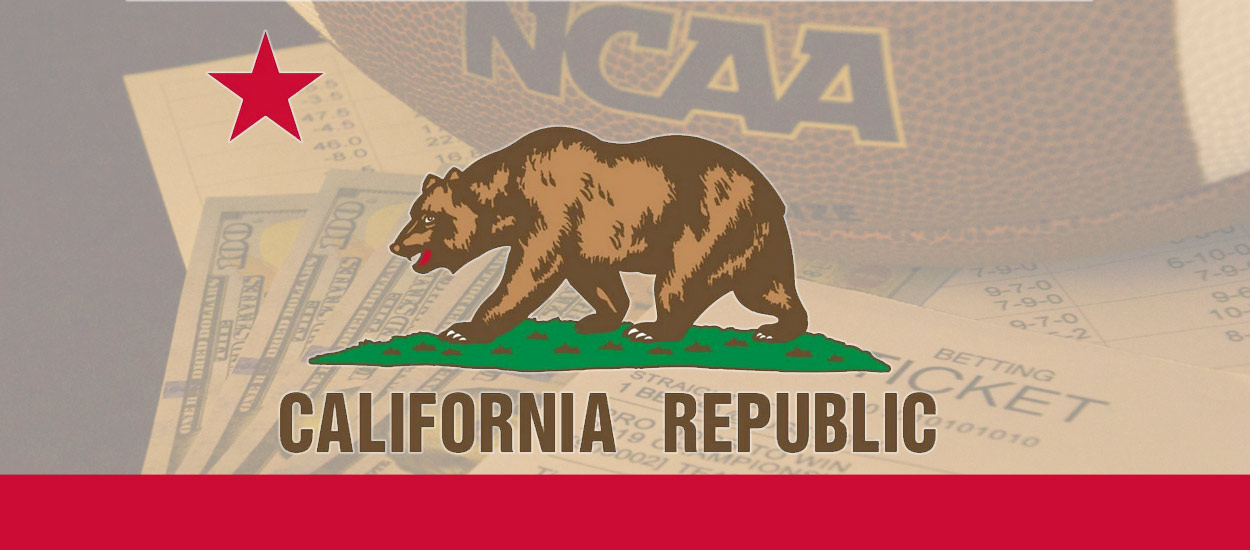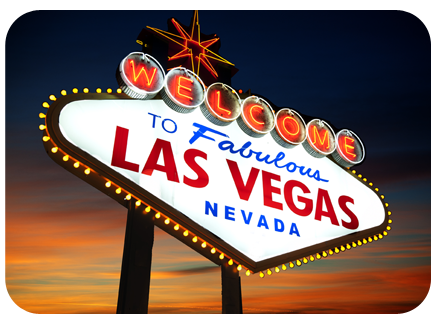The year that was 2019 was again filled with huge stories in the gambling world. The expansion of sports betting in the United States topped much of the news, but there were also some happening north of the border in Canada. Hartley examines the top 10 gambling stories that affected North America beginning with stories six through 10 below. The list kicks off with a story out of Canada and the top 5 stories will be posted tomorrow!
10. A demand by government officials in Canadian border cities to allow single game sports betting in order to survive
For most Canadian gamblers, especially those in Ontario, it must seem that the issue of single game sports betting has been going on forever. The law in Canada states that sports betting is allowed as part of a lottery scheme, but is not legal on single games or events. An Member of Provincial Parliament (MPP) from Windsor first asked for that provision to be overturned in 2011 in order to attract more American bettors to the border casinos and the motion passed in the Canadian House of Commons with all party support. The bill was sent to the Canadian Senate to rubber stamp the bill into law, but the Senate chose to stall the bill and would not sign it. The Senate argued that there was no real debate over the bill and they were facing objections from the major sports leagues and particularly the NHL to not sign it. Add to that the fact, many government officials were calling for the Senate to be abolished after some Senators were being investigated for inappropriate conduct, and the Senate chose to make this bill the one they were going to take a stand on to appear more relevant. Up to that point the Canadian Senate always signed a bill that was voted on unanimously in the House. Consequently, the bill stalled and was not voted on again until a new Prime Minister was elected. When Justin Trudeau took power as Prime Minister the bill was reintroduced by MPP Brian Masse and it was defeated. Fast forward to 2018 and the Supreme Court of the United States repealed PASPA. Thus far, 21 states have legalized sports betting, including the border states of New York, Pennsylvania, Maine, Montana and Michigan. And it is expected all the border states except Wyoming will have sports betting within the next few years. Consequently Brian Masse has tentatively introduced a version of the same bill in the House (which will formally be announced in 2020) and the MPP, along with members of all parties and border casino owners have stated that rejecting it this time will all but destroy casinos in the border towns because now rather than trying to get a competitive advantage they simply want single game sports betting to compete with U.S. states and give more reasons for Canadian gamblers to stay home. And when it is finally debated in the House it is expected to easily pass both the House and Senate since the main objection by the Senate the first time, the lack of support by the sports leagues, is gone since the leagues have adopted the idea of betting on their sports in the U.S. and in fact are profiting from the betting. Also, with a minority government it is very unlikely Trudeau will try and stop a bill that the provinces are asking for and which the opposition parties now support.
Fast forward to 2018 and the Supreme Court of the United States repealed PASPA. Thus far, 21 states have legalized sports betting, including the border states of New York, Pennsylvania, Maine, Montana and Michigan. And it is expected all the border states except Wyoming will have sports betting within the next few years. Consequently Brian Masse has tentatively introduced a version of the same bill in the House (which will formally be announced in 2020) and the MPP, along with members of all parties and border casino owners have stated that rejecting it this time will all but destroy casinos in the border towns because now rather than trying to get a competitive advantage they simply want single game sports betting to compete with U.S. states and give more reasons for Canadian gamblers to stay home. And when it is finally debated in the House it is expected to easily pass both the House and Senate since the main objection by the Senate the first time, the lack of support by the sports leagues, is gone since the leagues have adopted the idea of betting on their sports in the U.S. and in fact are profiting from the betting. Also, with a minority government it is very unlikely Trudeau will try and stop a bill that the provinces are asking for and which the opposition parties now support.
So, it seems almost a certainty that single game sports betting will be legal in Canada within the next year, which will again put it on our list of the top gaming stories in North America.
9. The ongoing saga with the Seneca Nation in Western New York
It's been somewhat of a tumultuous time in New York State with the Seneca Indian tribe. In 2002 the Seneca Nation signed a 14 year compact with the state of New York that gave the Seneca Indians virtual control of gambling in all Western New York. In exchange the tribe agreed to send 25% of the revenue to Albany who would then share that revenue with the host cities. Consequently, the tribe opened casinos in Niagara Falls, Buffalo and Salamanca. While the tribe sent payments to the capital as required for the first eight years of the compact, it announced in 2012 it would not make payments to the state anymore since the Nation leaders said the state violated the compact by allowing racinos to be set up at Batavia Downs and in Hamburg. The state said that the agreement in the compact mentioned Las Vegas style casinos and a few slot machines inside a racetrack didn’t qualify. The Seneca Nation disagreed but resumed payments after the state threatened to close them down. When the compact ran out in 2016, however, neither side may any attempt to renew the compact and under the terms of the 2002 compact if neither side tried to renegotiate it then it automatically extended for 7 years. Nevertheless, the Seneca Nation said the silence meant they owed nothing, and they stopped making payments to the state (estimated at about $110 million per year). Along with the racinos, the Seneca Nation was upset that New York agreed to the opening of four commercial non-Indian casinos located in Nichols, Schenectady, Waterloo and the Catskill Mountains. The Seneca Indians, along with the Oneida Nation were particularly furious with the Del Lago Casino Resort opened in Waterloo, New York since they deemed that was still their territory (although in reality it was just outside the boundaries). As a result of the stalemate the state asked for binding arbitration to settle the dispute once and for all.  The Seneca casinos continue to operate, but for almost three years the Nation has not sent a single payment to Albany. The arbitration panel sided with the state, but the Seneca Nation refused to abide by that decision saying that the whole concept of binding arbitration was contrary to the Indian Gaming Regulation Act. Consequently the state took the Seneca Nation to federal court demanding they abide by the ruling and pay up and in November this year the courts told the Seneca Nation that arbitration was final and they had no right to withhold payments and owed the state $255 million from casino revenues accrued up to that point along with revenues accrued in 2019.
The Seneca casinos continue to operate, but for almost three years the Nation has not sent a single payment to Albany. The arbitration panel sided with the state, but the Seneca Nation refused to abide by that decision saying that the whole concept of binding arbitration was contrary to the Indian Gaming Regulation Act. Consequently the state took the Seneca Nation to federal court demanding they abide by the ruling and pay up and in November this year the courts told the Seneca Nation that arbitration was final and they had no right to withhold payments and owed the state $255 million from casino revenues accrued up to that point along with revenues accrued in 2019.
In his ruling Judge William Mkretny told the tribe that they agreed in the 2002 compact to settle any disputes through binding arbitration and the federal courts had no option but to abide by the arbitration decision "so long as there is a barely colorable justification for the outcome reached which was easily met in this case."
The Seneca Nation is still mulling over the options, but thus far has made no effort to send Albany what is owed. As a result, the state is now reviewing their options including shutting down the casinos (although they would prefer not to do that since similar actions have often resulted in violent conflicts). But one thing that many casino operators and legislators are demanding is the state not permit the Seneca Nation to offer sports betting until the payments are made. The state of New York finally agreed to allow sports betting and so far, two upstate commercial casinos have begun offering it. There is no question that single game sports betting would be a big boon for the Seneca casinos, but the Nation does not believe that is a reason to simply give in and pay. And per the Indian Gaming Regulation Act, any betting that is legal in commercial casinos is automatically legal at Indian casinos as well so if they want to offer sports betting the Seneca Nation believes the state cannot use that as a threat.
The final outcome of this situation is being viewed widely across the United States since compacts are running out in many states, and in Florida and California in particular, there has been a great debate about whether the states really have the right to demand payment from Indian nations for gambling or whether gambling is the Native tribes' right as a sovereign entity without having to pay anything to entities located outside of Native land.
8. California's decision to pay college athletes
Long before the Supreme Court repealed PASPA, college athletes had been asking to be paid given that the NCAA makes billions from TV and merchandisers for the games they are involved in and the use of their images and likeness. The NCAA, however, argued that the players' "pay" are scholarships that include education, room and board, meals, medical bills and a small living allowance. Plus, any good players will make their money when they turn pro. Those scholarships could be as high as $100,000 depending on the school, duration of study and area of study.
For the most part states ignored the pleas from players to be paid, but in 2019 the state of California signed into law a bill called the Fair Pay to Play Act that gives money to players for the use of their name and likeness. Examples where players would be compensated include names on football or basketball jerseys, images on magazines or promotional materials and likenesses in video games. The decision by California has caused concerns that it could significantly decrease NCAA revenues and in turn could hurt the ability of the league and teams in California to offer scholarships. And more concerning it could give California teams an unfair advantage over teams in other states who don't have the law in place and could even force those schools to follow suit in order to compete. Governor Gavin Newsome said that the NCAA pleaded with him not to sign the bill to protect the sanctity of amateurism, but he claimed he was more concerned with welfare of the students. The NCAA also expressed concern that this new law could have a major impact on Olympic sports, since the Olympic Committee may deem that athletes who are paid in any form are professionals and will not be able to compete for their national teams. Athletes like Lebron James applauded the decision, saying it’s about time players are paid and other athletes and analysts noted that any drop in revenue to the leagues because they will not benefit solely from merchandise sales will be offset by the increase in revenues from attendance and viewership as a result of sports betting, particularly if the NCAA gets any integrity fees. It was also noted that paying players may convince the growing trend of athletes going from high school straight to the pros to go to college first which will also help the league and the schools. Other athletes, however, have stated that they may have indeed played differently if they were paid and valued their college years because they played for the pleasure of competing rather than for money. And they are worried that allowing players to get paid will change that. Moreover, some bettors who wager exclusively on college sports are worried that paying players could change the ways some games are played and may make handicapping games more difficult, but other bettors applaud the decision saying it removes the temptation for good players to shave points.
Athletes like Lebron James applauded the decision, saying it’s about time players are paid and other athletes and analysts noted that any drop in revenue to the leagues because they will not benefit solely from merchandise sales will be offset by the increase in revenues from attendance and viewership as a result of sports betting, particularly if the NCAA gets any integrity fees. It was also noted that paying players may convince the growing trend of athletes going from high school straight to the pros to go to college first which will also help the league and the schools. Other athletes, however, have stated that they may have indeed played differently if they were paid and valued their college years because they played for the pleasure of competing rather than for money. And they are worried that allowing players to get paid will change that. Moreover, some bettors who wager exclusively on college sports are worried that paying players could change the ways some games are played and may make handicapping games more difficult, but other bettors applaud the decision saying it removes the temptation for good players to shave points.
7. David Baazov's lawsuit against the Quebec government
In early 2019 David Baazov, the former CEO of Amaya Gaming (now Stars Group), sued the Quebec Securities Regulatory Authority, Autorité des marchés financiers (AMF), for $2 million claiming malicious prosecution and abusive practices. AMF charged Baazov along with other employees at Amaya with securities fraud, claiming the company tried to influence the price of Amaya shares prior to the purchase of Poker Stars for $4.9 billion. The Quebec court overhearing the case said the charges had no merit and tossed them. They also chastised AMF for illegally obtaining information they were not allowed to see and attempting to confuse the defense. AMF considered appealing but chose not to. Consequently, Baazov sued AMF this year for malicious prosecution saying the charges were an abuse of power and AMF had to be held accountable for its actions. He also said should he win the case he will donate the money to charity. Along with Baazov, a rabbi from Chabad (an orthodox Jewish organization) sued AMF as well for abusive practices by breaking into Chabad offices in Montreal and seizing money and files that he said had nothing to do with the case against Amaya. And last year a Kentucky court tossed charges against Amaya launched by the Kentucky state government after the courts said the suit had no merit.
Along with Baazov, a rabbi from Chabad (an orthodox Jewish organization) sued AMF as well for abusive practices by breaking into Chabad offices in Montreal and seizing money and files that he said had nothing to do with the case against Amaya. And last year a Kentucky court tossed charges against Amaya launched by the Kentucky state government after the courts said the suit had no merit.
This suit by Baazov if successful, could prove significant since there are several individuals who likely believe government agencies in both the U.S. and Canada overstepped their authority in arresting them and a successful suit here could set a precedent. In particular individuals associated with NETeller, Bodog and the now defunct BetonSports and WorldWide Telesports could use this case to try and clear their names. Gaming lawyers like Larry Walters noted that it is difficult to win lawsuits against federal authorities since they generally maintain qualified immunity from prosecution but at the same time it isn’t impossible.
6. Changes in the Las Vegas Landscape
While the Nevada Gaming Board continues to deny that the decline in hotel stays and convention attendance in Sin City along with decline in betting on many of its most popular games like baccarat and slots is a concern, behind closed doors casino owners are expressing concern. 2018 and 2019 were two of the worst years for Vegas and there are many factors that can be attributed to the decline. For one, a large increase in resort and parking fees has been discussed extensively on social media and the loss of cheap restaurants makes a getaway to Vegas expensive, even before gambling. Long gone are the days of cheap buffets and subsidized junkets, as well as free hotel stays for decent play. Nowadays one has to wager several thousand dollars before they’ll get the notice of the pit boss and for the larger hotels any comps are strictly based on points accumulated on player cards rather than from the observation of casino managers. One can thank Sheldon Adelson and the Las Vegas Sands for that change in philosophy.  That said, not all of the decline can be placed on the actions of the casino industry. Also contributing to the decline is a blip in the economy and the large decline of visitors from China who have come less frequently after the election of Donald Trump. The negative comments about foreign countries by Trump have made many Chinese gamblers uncomfortable with coming to the U.S., plus the trade war between the 2 countries have convinced many large Chinese bettors to stay home and gamble in Macau or Singapore than risk a trip to Vegas. Consequently table games like baccarat have seen declines of almost 40%. Add to that the decision by many northern U.S. citizens to gamble at local casinos or in Atlantic City, especially after the repeal of PASPA allowed them to wager on sports, and the decline was inevitable.
That said, not all of the decline can be placed on the actions of the casino industry. Also contributing to the decline is a blip in the economy and the large decline of visitors from China who have come less frequently after the election of Donald Trump. The negative comments about foreign countries by Trump have made many Chinese gamblers uncomfortable with coming to the U.S., plus the trade war between the 2 countries have convinced many large Chinese bettors to stay home and gamble in Macau or Singapore than risk a trip to Vegas. Consequently table games like baccarat have seen declines of almost 40%. Add to that the decision by many northern U.S. citizens to gamble at local casinos or in Atlantic City, especially after the repeal of PASPA allowed them to wager on sports, and the decline was inevitable.
While some casino operators are just riding out the current storm, one casino that is starting to look elsewhere is MGM. In an effort to clear up its debt and free up funds for expansion, the company put most of its casinos into an income trust (which they own 70% of) a few years back, and in 2019 MGM sold Circus Circus outright to Phil Ruffin for $825 million and sold the Bellagio Hotel and Casino for $4.25 billion to Blackstone Income Trust. MGM, however, will maintain the oversight of the Bellagio by leasing the property back from Blackstone for $245 million per year. And MGM is apparently also looking at a sale/lease on other properties it owns. MGM’s plans are to use the funds to expand into states without a large casino and/or are offering sports betting since they view new markets and sports betting as the big money makers going forward. And internationally they are actively pursuing the proposed resort casino in Japan that the government there approved in principal since winning the bid to run that casino is viewed by all potential analysts as a gold mine.
While MGM is restructuring, Caesars has effectively thrown in the white towel. Caesars and Eldorado Resorts agreed to a takeover of Caesars’ Nevada properties for $17 billion or about $13 per share. Under the agreement the Caesars name will be maintained but Eldorado will take over the operations. And Eldorado announced it would be selling some underperforming casinos that both it and Caesars owns to fund the deal.
Any way you slice it, Nevada is slowly losing the appeal it always had as being the place to go for gambling.
Check out the top 5 gambling stories in North America for 2019, including online gambling, sports betting and the Top Gambling story of 2019, here.
Read insights from Hartley Henderson every week here at OSGA and check out Hartley's RUMOR MILL!







































